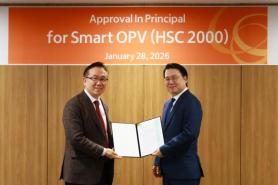
SEOUL, July 29 (AJP) - South Korea’s Ministry of Land, Infrastructure and Transport (MOLIT) on Tuesday announced the completion of its spatial intelligence system known as Geo-AI, a next-generation artificial intelligence technology designed to analyze and respond to queries using spatial information such as maps, locations, environments, and moving objects. The ministry will begin full-scale research and development (R&D) in August to prepare the technology for commercialization.
Unlike traditional chatbot-style AI, Geo-AI incorporates spatial and temporal elements to deliver optimized responses. The technology enables users to interact through natural language queries such as, "Show me apartments under 300 million won near a subway station and within 100 meters of an elementary school." and receive results visualized on 3D maps. This is made possible through the system’s ability to interpret complex datasets including real-time traffic, infrastructure, and public records.
Geo-AI is characterized by three major features: 3D map-based visual response, inference capabilities that understand spatial context and relationships, and integration of heterogeneous spatial datasets ranging from urban planning and transportation to climate and CCTV footage.
The system is already being piloted by real estate startups, which are using mid-stage versions of the technology to automatically recommend property listings and connect users to AI-based brokerage services. In the safety domain, smart glasses embedded with Geo-AI allow construction workers to locate underground infrastructure via voice command in real-time. Additionally, autonomous mobile robots (AMRs) utilizing Geo-AI can calculate and follow optimal paths based on real-time obstacles and traffic data.
Geo-AI will be accessible via internet-connected devices such as smartphones and navigation systems, without requiring additional software installation. A demonstration version is expected to be deployed through MOLIT’s V-World spatial data platform.
Originally initiated in April 2022, the Geo-AI development project is scheduled to run through December 2027 with a total budget of 10.82 billion won (about $7.8 million). The initiative involves collaboration among four universities (Seoul National University, Yonsei University, Kunsan National University, and Korea National University of Transportation) and three private companies.
According to MOLIT, the project aims to lay the foundation for an advanced public spatial information platform and foster innovation among spatial data startups. The ministry plans to enhance service features over the coming years, gradually shifting toward full-scale deployment and service integration by 2027.
Copyright ⓒ Aju Press All rights reserved.




